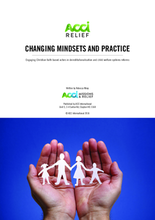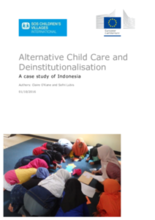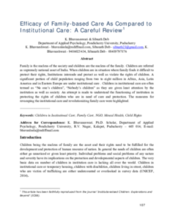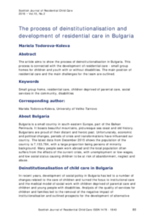Displaying 1011 - 1020 of 1510
This report provides an evaluation of the Keeping and Finding Families Project, a pilot foster care project in Tajikistan.
This paper builds on a recent evaluation of the piloting of the continental European model of social pedagogy (SP) in English residential care. It does three things: it considers the theoretical social policy literature on policy transfer and its implications; discusses European residential care for children and the discipline of SP; and reflects on these debates and the situation of children's residential care in England.
This video by Child's i Foundation in Uganda document's the journey of a little girl, Praise, from being abandoned to being placed into to a permanent family. The video shows the tracing process and temporary placement with a foster car
This tool was designed to help those seeking to assist Christian faith-based actors involved in long-term residential care programs make the transition from institutional to non-institutional (family and community-based) child welfare programs.
Five years ago, Child's i Foundation founder Lucy Buck set up a 25-bed 'transitional facility' to prove it was possible to place children in need of care into permanent families. Childs' i Foundation piloted an 'emergency care pilot' to see i
To meet the demand for high quality trainer's training programs in the group care sector, Fairstart Foundation designed an online education program for training groups of caregivers.
The objective of this study was to develop and test an instrument to measure self-representation of youths in residential care in Portugal.
This report is a case study of alternative child care in Indonesia. Research was conducted that found that with an estimate of 8,000 institutional facilities servicing 500,000 children, Indonesia was overly reliant on institutional care.
This paper aims to understand the functioning of institution in protecting the rights of children who are in need of care and protection and highlight measures for revamping the institutional care and revolutionizing family care.
The article aims to show the process of deinstitutionalisation in Bulgaria.





